Steroids: Understanding Their Role and Impact
Steroids are organic compounds with a characteristic molecular structure containing four rings of carbon atoms. They are naturally produced in the body and are involved in a wide range of physiological functions. In medicine, synthetic steroids have been developed to mimic these natural hormones for therapeutic purposes. However, their use—particularly in sports and bodybuilding—has raised significant concerns regarding health risks and ethical implications.
Types of Steroids
Steroids can be categorized into several types based on their origin and function:
- Natural Steroids: These include hormones such as testosterone, estrogen, and cortisol produced by the adrenal glands and gonads.
- Synthetic Anabolic Steroids: Man-made substances that mimic testosterone’s effects to promote muscle growth and enhance athletic performance.
- Glucocorticoids: A subset of steroid hormones used primarily for their anti-inflammatory and immunosuppressive properties.
- Mineralocorticoids: Hormones that help regulate electrolyte and water balance in the body, such as aldosterone.
Medical Uses of Steroids
Steroids have numerous medical applications, including:
- Anti-inflammatory Treatments: Glucocorticoids like prednisone are prescribed for conditions such as asthma, arthritis, and autoimmune diseases to reduce inflammation.
- Hormone Replacement Therapy: Testosterone replacement therapy can help men with low testosterone levels restore normal hormone balance.
- Dermatological Conditions: Topical corticosteroids are used to treat skin ailments like eczema and psoriasis.
- Cancer Treatment: Certain steroids can enhance the effectiveness of chemotherapy and alleviate side effects.
Steroids are a class of compounds that play a crucial role in various physiological processes due to their pharmacological action. They are often used to reduce inflammation, suppress the immune system, and aid in muscle growth and recovery. The mechanism of action typically involves the modulation of gene expression, which leads to changes in cellular function. For more detailed information on the pharmacological effects and uses of steroids, you can visit steroidonlineuk.com.

Risks and Side Effects
Despite their benefits, the misuse of steroids, particularly anabolic steroids, poses significant health risks. Common side effects include:
- Cardiovascular Problems: Increased risk of heart attack and stroke due to elevated blood pressure and cholesterol levels.
- Liver Damage: Oral anabolic steroids can lead to liver toxicity and other liver-related issues.
- Hormonal Imbalances: Men may experience reduced fertility and breast development, while women might encounter male-pattern baldness and voice deepening.
- Psycho-emotional Effects: Mood swings, aggression, and anxiety can occur with steroid abuse.
The Ethical Debate in Sports
The use of anabolic steroids in professional sports has sparked heated debates surrounding fairness and athlete safety. While some argue that they level the playing field, others contend they create an unfair advantage and undermine the integrity of competition.
Regulations and Testing
Many sporting organizations, including the International Olympic Committee (IOC) and the World Anti-Doping Agency (WADA), have established strict regulations against steroid use. Athletes are subject to random testing to detect banned substances, with penalties ranging from suspensions to lifetime bans from competition.
Conclusion
Steroids, while beneficial in specific medical contexts, come with considerable risks, especially when misused. Education about their effects, potential side effects, and the ethical considerations surrounding their use is essential. Individuals considering steroid use should consult healthcare professionals to weigh the risks and benefits comprehensively.

